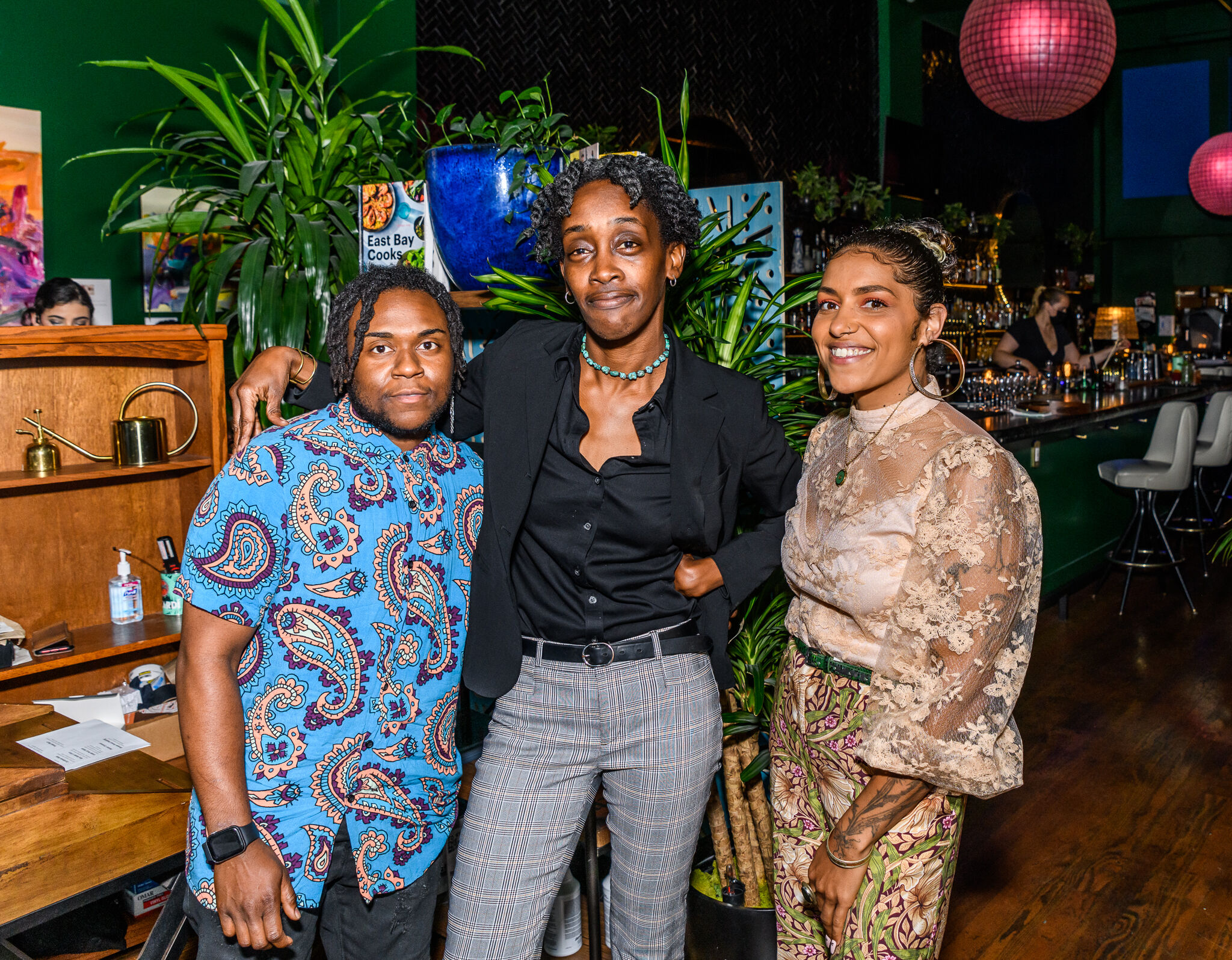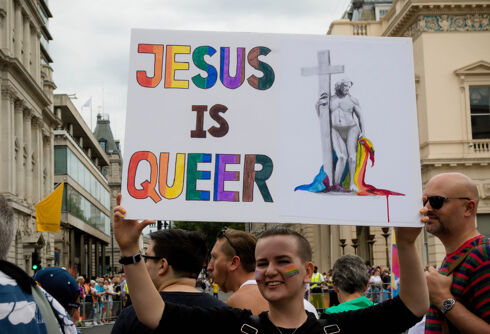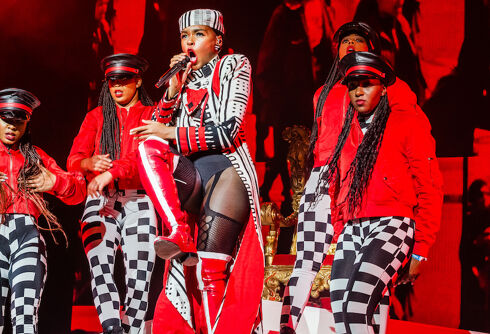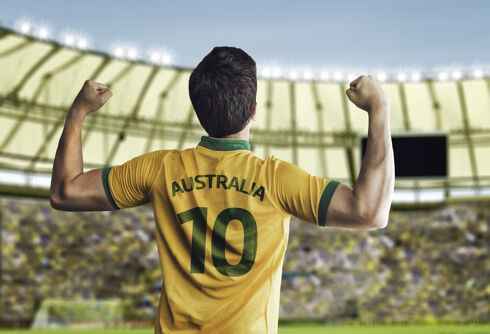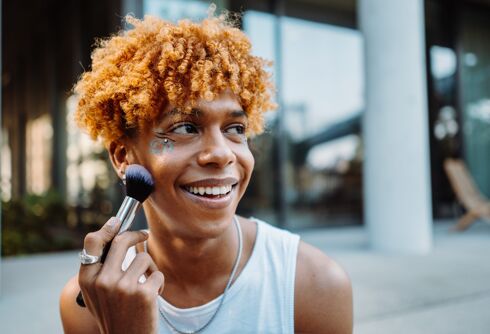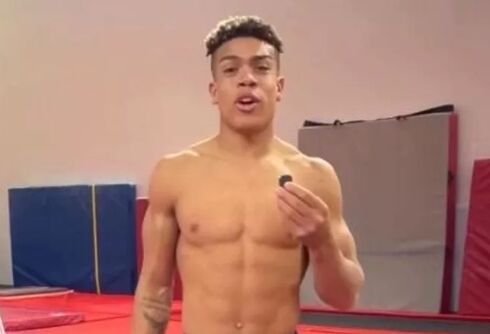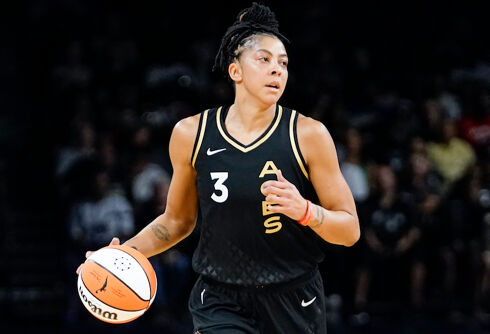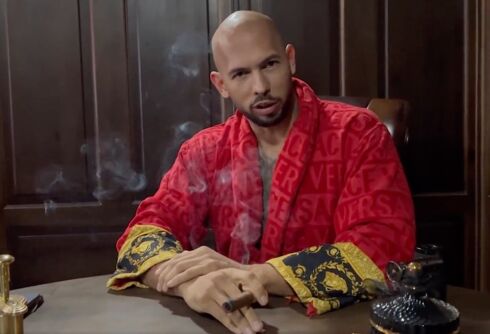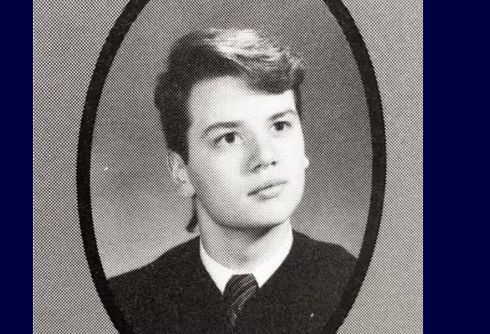Today, the third annual Oakland Black Pride Festival kicks off with a fabulous benefit dinner spotlighting the culinary contributions of queer people of color. It’s the first in a five-day series of events — including workshops, a cookout, and a bar crawl—that Oakland Black Pride founder and CEO Olaywa K. Austin says are aimed at serving the particular needs of the San Francisco Bay Area’s Black queer community.
The festival has its roots in the summer of 2020, when Austin and friends began trying to figure out how to celebrate Pride amid the COVID-19 lockdowns.
Related:
NYC’s Queer Liberation March may be the most important protest & celebration this year
The march is Trans & Queer: Forever Here
“As we were quarantined and I was trying to figure out things to do and how to express my queerness, I was like, ‘How come all of these things can’t be done in festival style?’” Austin told LGBTQ Nation. “These were things I would love to see in a Pride celebration. I would love to see educational things; I would love to see the transgender community making friends with the unhoused community before you make them leave the streets because your parade is coming down the street.”
Never Miss a Beat
Subscribe to our newsletter to stay ahead of the latest LGBTQ+ political news and insights.
Austin began to envision a Pride celebration that was more community-focused, that centered the needs and contributions of Black and brown queer and trans people while bringing the community together both to celebrate and to develop solutions to the challenges facing them. Austin found themself drawing up bylaws for a nonprofit organization and in June 2021 launched the first Oakland Black Pride Festival.
The event has grown exponentially in just a few short years. As the festival enters its third year, LGBTQ Nation spoke to Austin about this unique and vital Pride celebration.
LGBTQ NATION: What sets Oakland Black Pride apart from other localized organizations and festivals?
OLAYWA K. AUSTIN: One of the biggest takeaways, obviously, is that it’s Black-led. But because it is a festival, we take five full days. We don’t just have a big weekend, we stretch it out over five days, and within those five days we throw a lot of educational stuff in there. We use Pride and the festival as our greatest opportunity to disseminate information to our community. So, we throw panels in there and we throw online workshops, therapy, mental wellness rooms, and things like that leading up to the big celebration. I’d like to say that we’re probably 70 percent educational, 30 percent party, which sets us apart from a lot of the Pride celebrations that I’ve seen of late—which is fine. Celebrate how we celebrate, I love that.
LGBTQ NATION: Was there a gap you were trying to fill or a need that other Pride celebrations weren’t meeting?
OA: Absolutely. The one thing that has always been my gripe, if you will, with Pride celebrations is that they don’t sort of acknowledge the roots of Pride, other than maybe saying Marsha P. Johnson’s name. But what she was about was so much more than a float, you know what I mean? So, I stopped going, because once you’ve been in a parade, you’ve been in a parade. It doesn’t really change.
There were so many things that just didn’t sit right with the way Pride [celebrations] were being run. And to be honest, I didn’t see a lot of myself in the celebrations. I didn’t see a lot of acknowledgment of the historians and the architects of Pride. I wanted to bring that back, the history and the contributions of African Americans, transgender and nonbinary Black people, their contribution to the gay Pride movement. I didn’t see enough of it. And we celebrate differently, especially Pride.
LGBTQ NATION: What do you mean by celebrate differently?
OA: We celebrate differently than being on a float because we’re celebrating something different. It’s an acknowledgment, the way we celebrate, and it’s a safe way we celebrate. We pull ourselves into spaces where we know we will be taken care of. A lot of times when we go into other Pride arenas, we don’t always feel safe. We want to be in a space where we don’t have to explain ourselves, you know? And we don’t sort of have to have one eye on the door, and those spaces are very, very few and far for us these days. As a community, we are under attack 365 days, so it is important that we do carve out safe spaces for ourselves so our celebrations can be as vast and as beautiful as we are as a community.
LGBTQ NATION: In the last few years, there seems to have been more pushback to the official Pride celebrations. New York has the Queer Liberation March in addition to NYC Pride’s parade. Is that something you’ve noticed as well beyond what you’ve done with Oakland Black Pride?
OA: Absolutely. I started noticing it in 2018 and 2019 when there was some disruption of the San Francisco Pride parade for the very reasons that we spoke of — the fact that they don’t make people of color feel safe, they don’t prioritize Black transgender safety, for the way they treat the unhoused leading up the parade, how they displace the unhoused and don’t really provide any solutions to that. New Orleans Black Pride has done something similar. I had folks from San Diego asking me questions about how to strategize and build on our model, and even in Phoenix, people reach out. So, there are more people looking to build more community-based, festival-style celebrations, things that make us feel more like a community and that speak to the marginalized within the community.
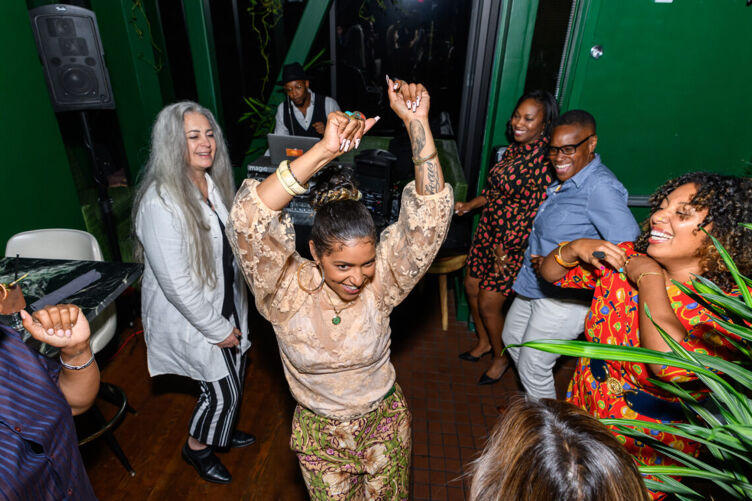
LGBTQ NATION: You mentioned the workshops that have been a part of Oakland Black Pride since the beginning. Why have they been such a big part of your festival?
OA: Part of our mission is to look for nuanced solutions to service the needs of the people in our community, and so a lot of times, systems make it difficult for us to get what we need and we have to figure out for ourselves how to come up with ways to get what we need. That’s the inspiration behind it. There are things that, our community at this intersection of Blackness and queerness — and Brownness and queerness — in the Bay area, that don’t affect white queerness. So, we have to seek solutions that speak to that intersection, and that’s really why the workshops exist, that’s something that you don’t normally see, and the Pride celebrations that you normally see are not catering to my demographic. So, when I’m serving my community, I have to think of ways to reach them, and so I ask questions.
And I serve myself too, because I need to. I had a lot of loss in 2021 and 2022. So, when we aligned ourselves with GetSomeJoy, our creative wellness partner, without me mentioning the grief that I was going through, [founder] Alex Hardy said, “You know, we have this workshop, ‘How to Navigate Grief and Loss Through Joy.’” As soon as we started developing the program, the community was like, “Thank you for this!”
LGBTQ NATION: I’ve been asking a lot of people about this lately. Given what feels like this resurgence of anti-LGBTQ+ political animus in the U.S., does Pride hit differently for you this year?
OA: It’s hit different every year since the pandemic, since 2020. Every year there’s something different about the approach. There’s something different about the air. But it never dampens the community organization. The people show up, and when they show up there’s always something looming over our celebrations, whether it’s a George Floyd situation or LGBTQ rights being under attack. And I think that fuels us.
Last year, we had the Proud Boys threaten to show up at our bar crawl. We have a pub crawl where we go around to different LGBTQ and Black-owned bars, and they said they were going to show up and that they had every right to show up. So, we had to tell our community that that was happening. We had to tell the city and the police that this could potentially be a thing. The community of Oakland showed up to our bar crawl in support, just to walk with us. So, yes, there’s always something that feels different about Pride, but whatever that is it always sort of brings us together a little deeper, it brings us a little closer.
LGBTQ NATION: I hate that we even have to think about that kind of thing, but are you anticipating anything like that again this year?
OA: We don’t anticipate it, but we always anticipate it. We’re dealing with a targeted community as it is. We vet our venues very closely and we work very closely with the city of Oakland and that ensures our safety. Last year when we had a verbalized threat, we communicated with our community. We try not to live in the shadows, but at the same time, sh*t’s real. People are getting harmed out here. I think we do a really good job of taking care of each other here.
LGBTQ NATION: Talk to me about curating this year’s festival. Were there any particular issues or themes you had in mind and wanted to highlight with the 2023 lineup?
OA: So, this is our third year. Because I was grieving, I did feel a need to offer my community a safe space to feel the same way. Because I see it. I often go to Facebook and Instagram and check the temperature of the collective, and a lot of folks are grieving and mourning. Particularly in my community. So, I felt it was necessary to allow us a space to do so. It’s a necessary part of life, and that was the precipice of the conversation with Alex from GetSomeJoy.
And in my community, there’s a lot of talk about sex work and how it affects the queer Black community. I wanted to decriminalize and destigmatize sex work. Sex is just a taboo cross-culturally, but I think that gets us into trouble. You get shamed and so you hide, and when you hide, you’re not necessarily careful about what you’re doing. I feel like a lot of the health issues in our community, we can come to an understanding if we talk about some stuff that we wouldn’t normally be able to talk about. That’s why we have this educator-led kink workshop. We’re going to talk about interactive exploration. It offers us a safe space led by a person of color who’s educated in the sex world.
LGBTQ NATION: While there’s a growing call to bring Pride back to its roots as a protest, I think a lot of people still want it to be a time to celebrate the community. How do you balance those two impulses to make Pride both a protest and a party?
OA: Our slogan this year is, “Celebrating the Magic of We.” And we’re always reminded of how it started, and that’s a very simple thing to do within the Pride arena. Every Pride arena should start with how it started. That’s a great way to keep people grounded and aware of what we’re really out here for. Yes, we’re gonna have fun. It’s gonna be a blast. But let’s just be intentional about speaking to the very beginning, why we’re really here.


